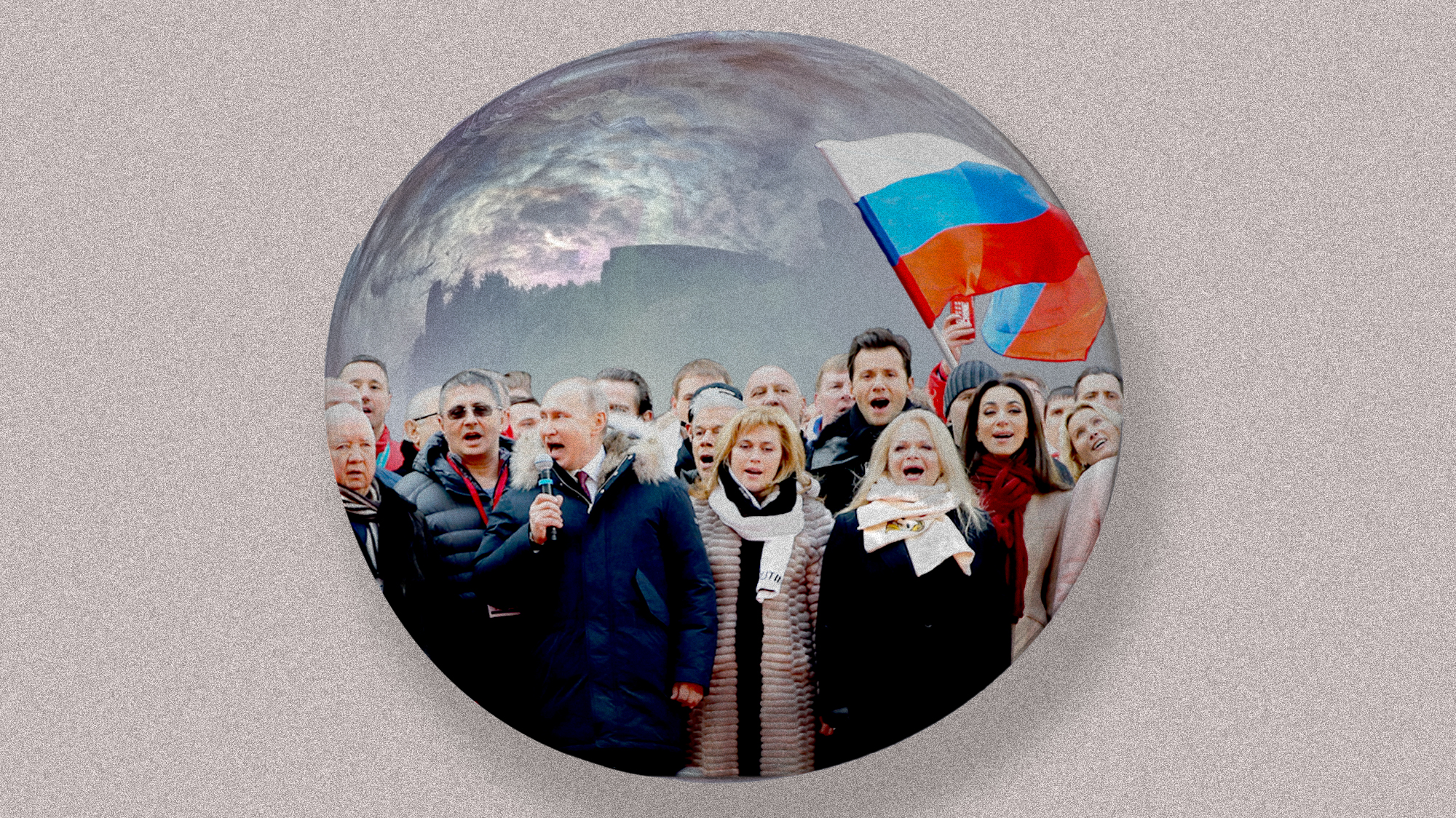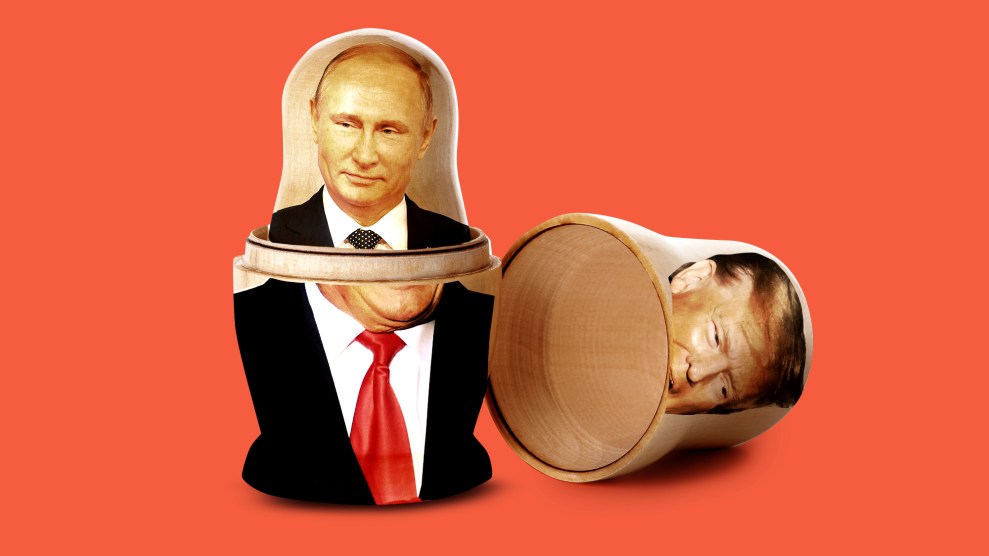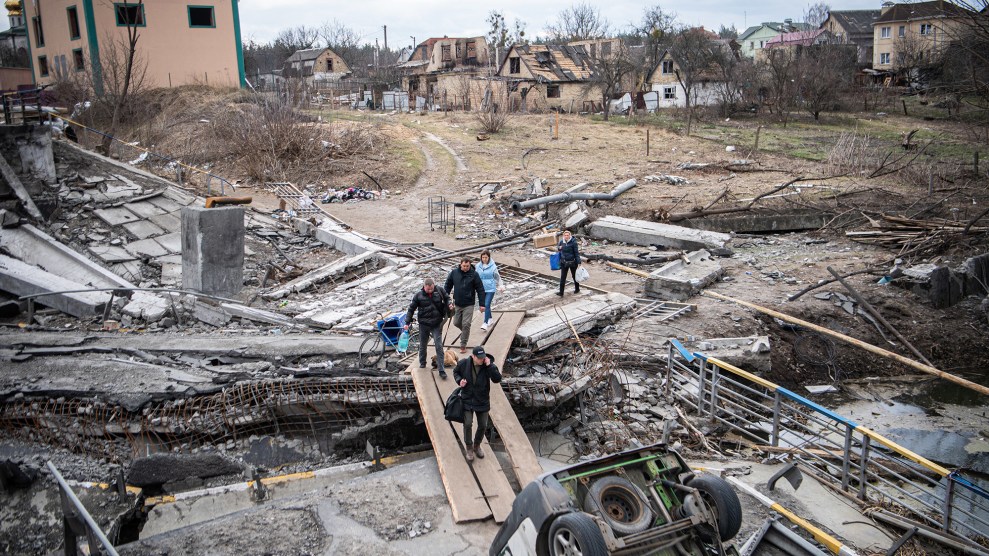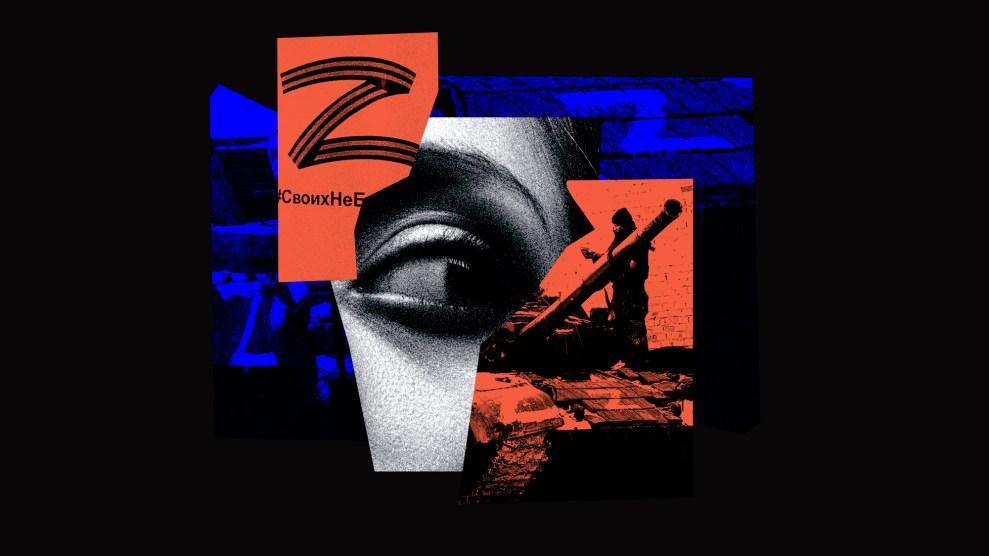Editor’s note: This essay’s author is anonymous to protect the writer from potential reprisals.
There are relatives with whom one must talk because one is obligated to do so, and undeclared wars make this especially tedious. Some won’t be bothered to discuss “politics” because they think the “special military operation” is not really that big a deal. Others talk about “politics” incessantly. Both options are bad.
Some people say, “I’m against the war, but so what? It’s already started. Now’s not the time to ask whether it’s justified. We’ll discuss that after it’s over. Right now, agitating people against the war, spreading fake news, that’s like shooting our own guys in the back.”
Others say, “What are you so worked up about? It was high time to take down the fascists. Don’t worry, it’ll be fine—we lived through the 1990s, we’ll live through this too.”
The economy is doing weird things, and we all need each other now more than ever. We don’t talk about politics because we don’t want to be fired. But also because “in this difficult time” we don’t want to sow discord between people who can help us do things and get things we might need or want through their personal channels. Stores are closing, commodities are disappearing, old ladies are fighting in grocery stores over the last bag of cheap sugar. China will surely come in and solve everything soon enough…but right now things are uncertain. So no political discussions. Politics is contentious, and therefore should be kept private, should be kept away from the street where it might disrupt the smooth flow of traffic. Times are tough. The West has attacked us with sanctions. We must hang together.
I’m reading the Book of Revelations because these days political predictions no longer make any sense. The book has taught countless generations the image of our ultimate end. Some people have focused on the four horsemen, others on the mark of beast. I’ve been thinking a lot about a slimier creature. “And I saw three unclean spirits like frogs come out of the mouth of the dragon, and out of the mouth of the beast, and out of the mouth of the false prophet.” (Revelation 16:13).
People live in different media bubbles. An old friend of mine who had emigrated from St. Petersburg now calls to express his concern. My partner plies him with seemingly positive stories. Her friends in a small Russian town quietly support her anti-war statements, she says. They sometimes even click “like” on her social media posts. (Facebook is blocked in Russia, but its Russian equivalent VKontakte is lively.) “It’s more personal for them in this town,” she explains. “There’s a special-forces division based there, and it has carried heavy losses. People have lost family members, they can’t doubt that the war is real.”
The émigré replies, “What do I care about Russian soldiers? They’re over there raping children, killing people, looting, and burning cities. They’re all the same, and none of them deserve sympathy. I don’t care about their deaths at all.” He’s taunting her and soon she’s screaming at him about how they’ve sent recruits, tricked them into signing up for this war: 18-year-old boys who had no idea where they were going.
Later she’s screaming at me: “You’re just like him, just like the rest of them. Why don’t you ever say anything? How can you say that all the soldiers are murderers, that they’re all child-rapists?”
“I didn’t say that,” I reply.
“But you didn’t contradict him! And you know that’s not true!”
“Yes, but I don’t care to fight. What does it matter what he says?”
“It matters because your silent complacency with this generalized hatred adds more hate to this fire, because it fuels the war. It matters because hatred and fascism breed more hatred and fascism. It matters because it means more people will die. But you don’t care, do you? As long as you don’t need to fight about anything.”
“You’re a conformist,” she concludes, “like the rest of them.”
And I feel it rising within me, like the impure spirits from Revelation that will leap from the mouth of the dragon, the beast, and the false prophet, looking like frogs. Only with my teeth do I stop it all from issuing forth. “So what?” the frog within me says. “That’s just what I am. I’m not ashamed.” Мне не стыдно.
#НамНеСтыдно. We are not ashamed. This is the rallying cry of this war, one of its formal slogans. It’s displayed on posters and bumper stickers and internet memes. We are Russians and we are not ashamed. Нас Рать: “We are legion.” Or, if read jointly, “насрать” translates to “We shit upon that.” Or, “We don’t give a fuck.” Нас рать, насрать. You see, it’s a pun. We don’t care. We are Russian, and we are not ashamed.
But what exactly are we not ashamed of? Some combination of living in squalor and being despised the world over. A certain hearty nobleness of the Russian soul, cloaked in material destitution and dirt.
This explanation was reposted online by a friend of a friend:
We have stood through more than a dozen queues for vodka, we know how to elbow our way through the line, know never to let people cut in line “just to ask” because they’ve “left a child home alone.”
We know that you can live with hot water twice a week, and cold water only in the evenings.
It won’t be hard for us to resurrect all these skills and feel young again.
That’s why we are not afraid of Covid, sanctions, asteroids, and Western propaganda.
If you’ve lived in Russia for a couple of decades, then you are forever ready for a little Apocalypse.
Pride in the face of squalor, the image of poverty. This city is glamorous and its tourist facades are clean. But all else is rotting. Buildings are visibly cracked, missing paint and plaster. Balconies and ornamentаl reliefs on the historical register are covered in green safety netting when they become frail. When their fragility threatens those on the sidewalks below, city maintenance workers simply cut them off. Hot water mains break, sending powerful geysers up through the asphalt, entire building blocks go cold, cars disappear under the pavement. This city, at the center of an Empire, is falling apart.
But there is no shortage of paint. Walls are painted over repeatedly to cover graffiti. Exposed plaster and brick above the two-meter mark, a patchwork of colorful squares below.
Free speech is eliminated quickly, and often irrationally.
A man in downtown Moscow was recently arrested for holding a packaged meatloaf.
The meat-producing firm is called “Miratorg.” He blacked out the last five letters and got “mir”—which in Russian means “peace,” and also “world.”
Another man held up his ATM card outside a downtown Moscow metro station. Was he speaking against the war or in support of the domestic banking system? In anticipation of a Visa/Mastercard boycott, the Russian state has developed an alternate system called MIR. So the term now has a third meaning. The police took him aside for questioning but eventually let him go home.
А group for children with autism had obtained permission to release white pigeons in a Novosibirsk city square on April 2, on World Autism Awareness Day. The police intervened but eventually let the group release their pigeons in a closed inner courtyard. This was the official comment: “We are very worried about you, and the possibility that your event could be interpreted as something that disturbs the quiet of the city.”
Too close, perhaps, to the white dove of peace.
It is impossible to take this ideology seriously. And yet here we are. Isn’t it funny that the Russian police are triggered by meatloaf and little white birds? Mockery so straight-faced that one cannot tell who is joking, but with serious consequences: fines, prison sentences, police batons. It all somehow maintains support for this war that many people believe should be waged against fascism.
“Nazism and fascism must be destroyed!” he says. “Even if this is the price that must be paid for it. We owe it to the 27 million (who died in the Great Patriotic War), we must not forget about them.” This is one man’s reaction to seeing videos of the destroyed city of Mariupol. He’s a real person. I’ve known him for years; he’s stayed with us in our house. His politics are fairly mainstream.
This narrative is harder to deal with when it is spoken by people who actually lived through the hell of Mariupol themselves. I recently talked to an old woman who had been evacuated from Mariupol. She said that the Ukrainian Nazis invaded the city back in 2014 and that they have been shelling it terribly. But the Russian army is there to fight back, thank God, just like in Great Patriotic War.
I’m not suggesting that her description is true—hiding in a cellar with death raining down around her, how could she know who was sending the bombs? But she just spent five weeks under siege with no question about who was responsible for it. This makes it hard for me to forget her.
The innocent dead of the Second World War have again been mobilized as the standard of violence. And not just in Russia. In the Euro-American West, WWII also represents that ultimate evil that is forever lurking under the surface of modern life: barbarity at the heart of civilized Europe. WWII is the ultimate genocide, the slaughter of Armenians, Bosnians, Palestinians, Rwandans, Serbians, Yemeni et al. notwithstanding.
Ukrainian President Volodymyr Zelenskyy, speaking on April 5 to the United Nations Security Council, said, “The most terrible war crimes we’ve seen since the end of World War II are being committed” by Russian troops in Ukraine. This is a political statement, of course, not a historical one. Populist rhetorical flair. And yet there is something so appalling about ranking mass killings on a 1–10 scale that it is beyond the grasp of my mind.
Take your damned presents and leave. We won’t tolerate fascists here.
A man has come over to drop off some things he no longer needs, for us to give out to others who might need them. He stayed for tea and told us how impressed he is by our president’s decisive firmness. He’s glad for it all, he said, even for sanctions: They’ll launch the reforms that we need to finally give us a solid economic foundation. Now we all have to think about the fate of Russia, about our geopolitical interests. All this talk about dead civilians is simply unethical. All major historical processes require certain sacrifices.
My partner kicks him out furiously: “Take your junk and get out of here!” He turns to me as he’s leaving and hisses, “I must say that this is all very impolite, everything that’s happening here.”
And I think, good riddance. I never liked the guy. I am not ashamed that his inner frogs won’t be jumping all over our table.
Editor’s update: A Russian news source reports that a man in Ivanovo was arrested for distributing George Orwell’s novel 1984 to passers-by.

















